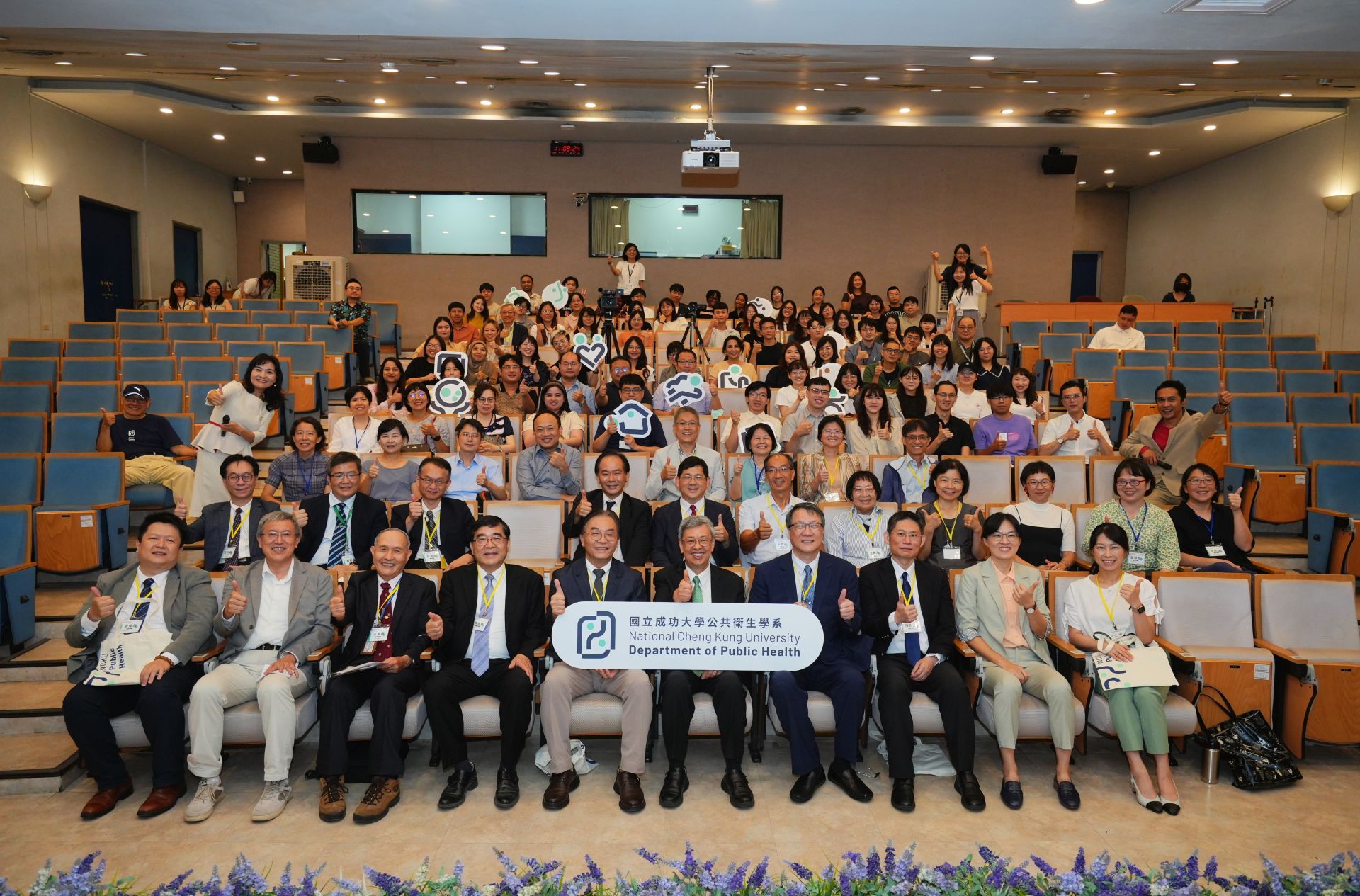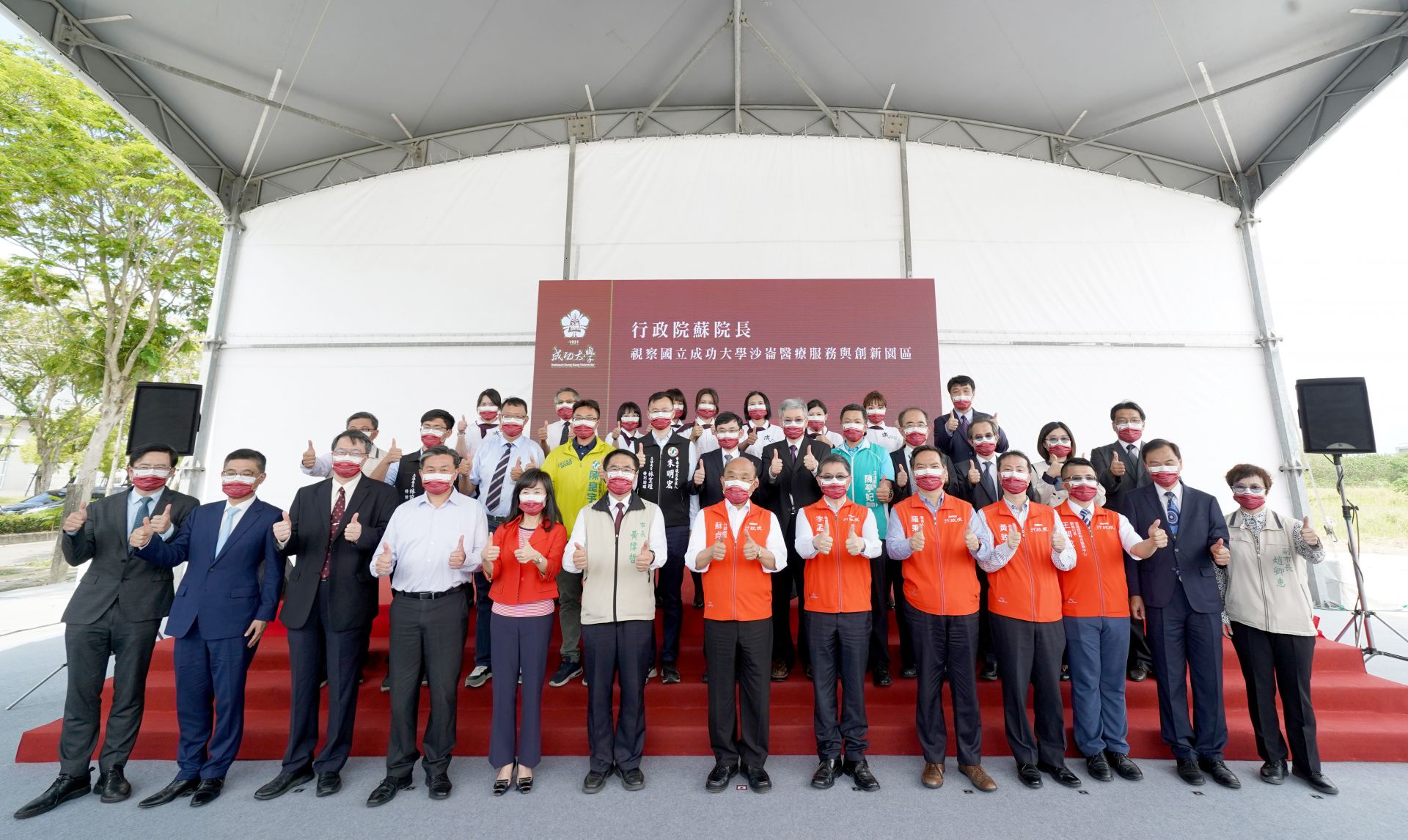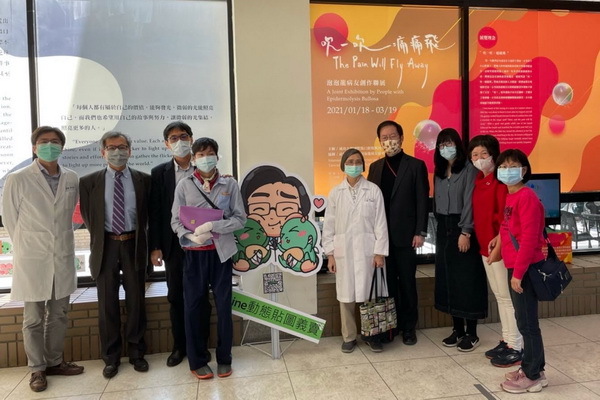SDG3
College of Medicine, NCKU Coordinated With Kyalio to Dismiss Medical Resource Inequality by Making VR Courses and Promoting Them
Bringing Taiwan onto the international stage, College of Medicine, NCKU coordinated with a medical education start-up, Kyalio to make VR courses of surgery. In future, the courses will be promoted worldwide for medical institutions and educational occasions in need, in order to solve the problem of medical resource inequality together.
They held a signing press conference in the morning on February, 16. It is not only presented the medical capacity of Taiwan to the world, but also provided more delicate and comprehensive surgical training options for those frontline medical personnel around the world who were still struggling with the epidemic.
Yau-Lin Tseng, the director of the Surgical Department of NCKU was invited to the conference to demonstrate how to use the VR system. After putting on the VR helmet, the screen will present the view of the endoscopy, clearly present the organ vessels and the location of the wound. At the same time, the user can also see the hand movements of the surgeon and the environment of the operating room, including the ventilator, ECG, surgical assistant, and the registered nurse. Furthermore, the video will also be accompanied by the voiceover narration by the chief surgeon, making immersive learning success in one go. Kyalio has also developed a mobile app that can be used with a simple Cardboard device to experience the same effects as VR.
Yan-Shen Shan, the dean of College of Medicine, NCKU said that NCKU’s hospital since the first case of kidney transplantation in 1994, has successfully developed liver, lung, and heart transplantation, breast reconstruction and thoracic surgery also achieved many success due to the lead of the directors of various departments. The hospital of NCKU has long engaged in combining technology and medical care, due to the coordination with Kyalio, the medical institutions around the world were able to observe the surgical results of NCKU through VR. This not only created global impact, but also contributed to the efforts of their colleagues who were also struggling with the epidemic.
Director Tseng said that the common surgical videos can only present the view inside the organ, it’s hard to show the behavior and judgment of the surgeon at that time. The role of assistant is also important. How to match smoothly and how to skillfully avoid the blood vessels when the surgeon makes the incision is often the key to the success or failure of the surgery. Therefore, in the past, foreign medical teams have often traveled for a long distance to NCKU to observe the surgery on site. But now, through VR technology, the video is able to present a more detailed view of the surgery, and can also enable more people to learn NCKU’s medical skills without the limitation of time and space. Digital technology has completely changed the way people learn, and the College of Medicine, NCKU expects that the establishment of VR courses can not only train students of the College of Medicine, but also benefit more people. The surgery department of NCKU indicated that the popularization of medical education resources is the first step to enhance the quality of medical service. In addition to strengthening the connection between NCKU and the global medical community, this project also expects Kyalio to develop research and technology and learning recognition by tracking users’ learning path and supplemented by AI research on the relation between cognition and learning outcomes, and continue to optimize the education of medicine school itself.
Cortilia Lin, founder of Kyalio, mentioned that Kyalio saw Taiwan's strengths in medical and VR, especially since the College of Medicine, NCKU was founded, it has taken the responsibility for cultivating talents in Southern Taiwan. During the process of becoming the medical stronghold in Southern Taiwan, many aspects of NCKU’s hospital have served as a model for developing medical institutions abroad.Cortilia indicated that it was a great honor for Kyalio to use a special technique of “story-telling” to integrate NCKU’s surgical experience into VR technology and to launch more immersive, real-life surgical teaching programs, attracting medical education institutions in Southeast Asia, Central Asia, and Africa to join the pilot program.
Kyalio is a medical education start-up that uses technology to bring change to a global medical market where resources are unevenly distributed. The VR technology enables medical training to serve more medical personnel at affordable prices, with the advantages of convenience and accessibility, and to reduce the urban-rural gap in the quality of medical service. This is in line with the patient-centered spirit of “holistic medicine” by NCKU.
They held a signing press conference in the morning on February, 16. It is not only presented the medical capacity of Taiwan to the world, but also provided more delicate and comprehensive surgical training options for those frontline medical personnel around the world who were still struggling with the epidemic.
Yau-Lin Tseng, the director of the Surgical Department of NCKU was invited to the conference to demonstrate how to use the VR system. After putting on the VR helmet, the screen will present the view of the endoscopy, clearly present the organ vessels and the location of the wound. At the same time, the user can also see the hand movements of the surgeon and the environment of the operating room, including the ventilator, ECG, surgical assistant, and the registered nurse. Furthermore, the video will also be accompanied by the voiceover narration by the chief surgeon, making immersive learning success in one go. Kyalio has also developed a mobile app that can be used with a simple Cardboard device to experience the same effects as VR.
Yan-Shen Shan, the dean of College of Medicine, NCKU said that NCKU’s hospital since the first case of kidney transplantation in 1994, has successfully developed liver, lung, and heart transplantation, breast reconstruction and thoracic surgery also achieved many success due to the lead of the directors of various departments. The hospital of NCKU has long engaged in combining technology and medical care, due to the coordination with Kyalio, the medical institutions around the world were able to observe the surgical results of NCKU through VR. This not only created global impact, but also contributed to the efforts of their colleagues who were also struggling with the epidemic.
Director Tseng said that the common surgical videos can only present the view inside the organ, it’s hard to show the behavior and judgment of the surgeon at that time. The role of assistant is also important. How to match smoothly and how to skillfully avoid the blood vessels when the surgeon makes the incision is often the key to the success or failure of the surgery. Therefore, in the past, foreign medical teams have often traveled for a long distance to NCKU to observe the surgery on site. But now, through VR technology, the video is able to present a more detailed view of the surgery, and can also enable more people to learn NCKU’s medical skills without the limitation of time and space. Digital technology has completely changed the way people learn, and the College of Medicine, NCKU expects that the establishment of VR courses can not only train students of the College of Medicine, but also benefit more people. The surgery department of NCKU indicated that the popularization of medical education resources is the first step to enhance the quality of medical service. In addition to strengthening the connection between NCKU and the global medical community, this project also expects Kyalio to develop research and technology and learning recognition by tracking users’ learning path and supplemented by AI research on the relation between cognition and learning outcomes, and continue to optimize the education of medicine school itself.
Cortilia Lin, founder of Kyalio, mentioned that Kyalio saw Taiwan's strengths in medical and VR, especially since the College of Medicine, NCKU was founded, it has taken the responsibility for cultivating talents in Southern Taiwan. During the process of becoming the medical stronghold in Southern Taiwan, many aspects of NCKU’s hospital have served as a model for developing medical institutions abroad.Cortilia indicated that it was a great honor for Kyalio to use a special technique of “story-telling” to integrate NCKU’s surgical experience into VR technology and to launch more immersive, real-life surgical teaching programs, attracting medical education institutions in Southeast Asia, Central Asia, and Africa to join the pilot program.
Kyalio is a medical education start-up that uses technology to bring change to a global medical market where resources are unevenly distributed. The VR technology enables medical training to serve more medical personnel at affordable prices, with the advantages of convenience and accessibility, and to reduce the urban-rural gap in the quality of medical service. This is in line with the patient-centered spirit of “holistic medicine” by NCKU.
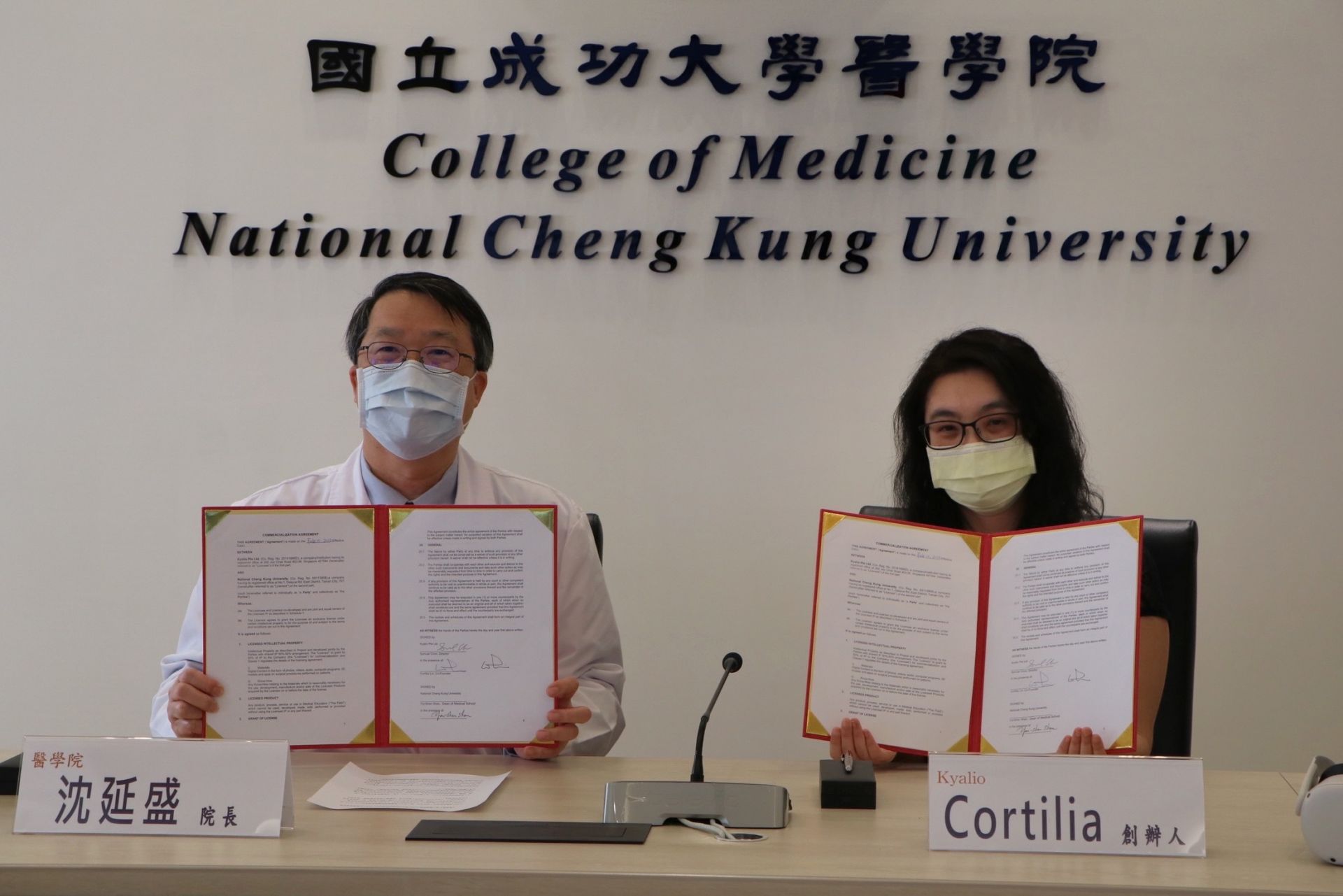
沈延盛院長(左)與 Cortilia Lin 簽約儀式圓滿成功
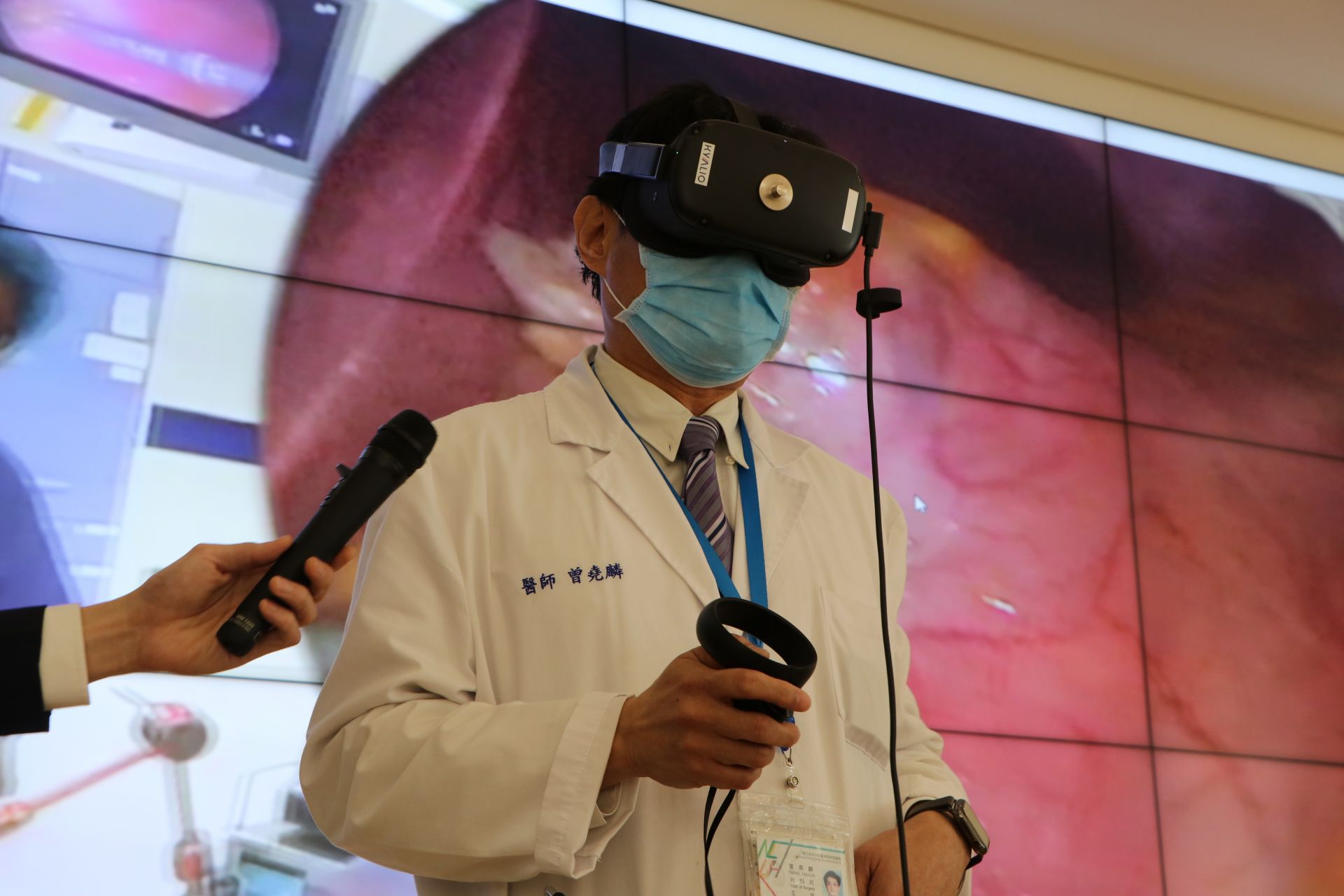
曾堯麟主任示範戴 VR 頭盔實際畫面,清楚顯示器官血管與傷口位置
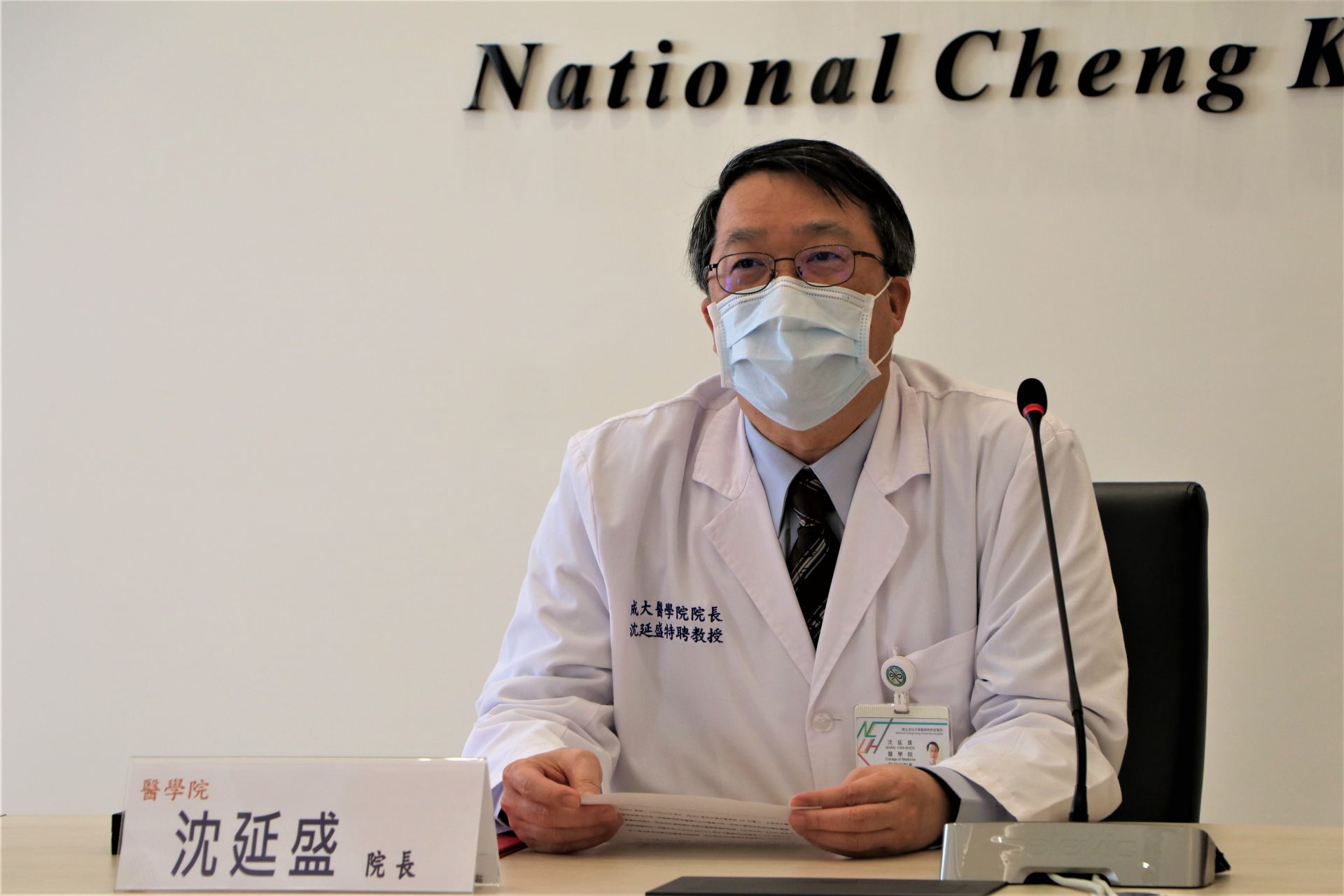
成大醫學院院長沈延盛
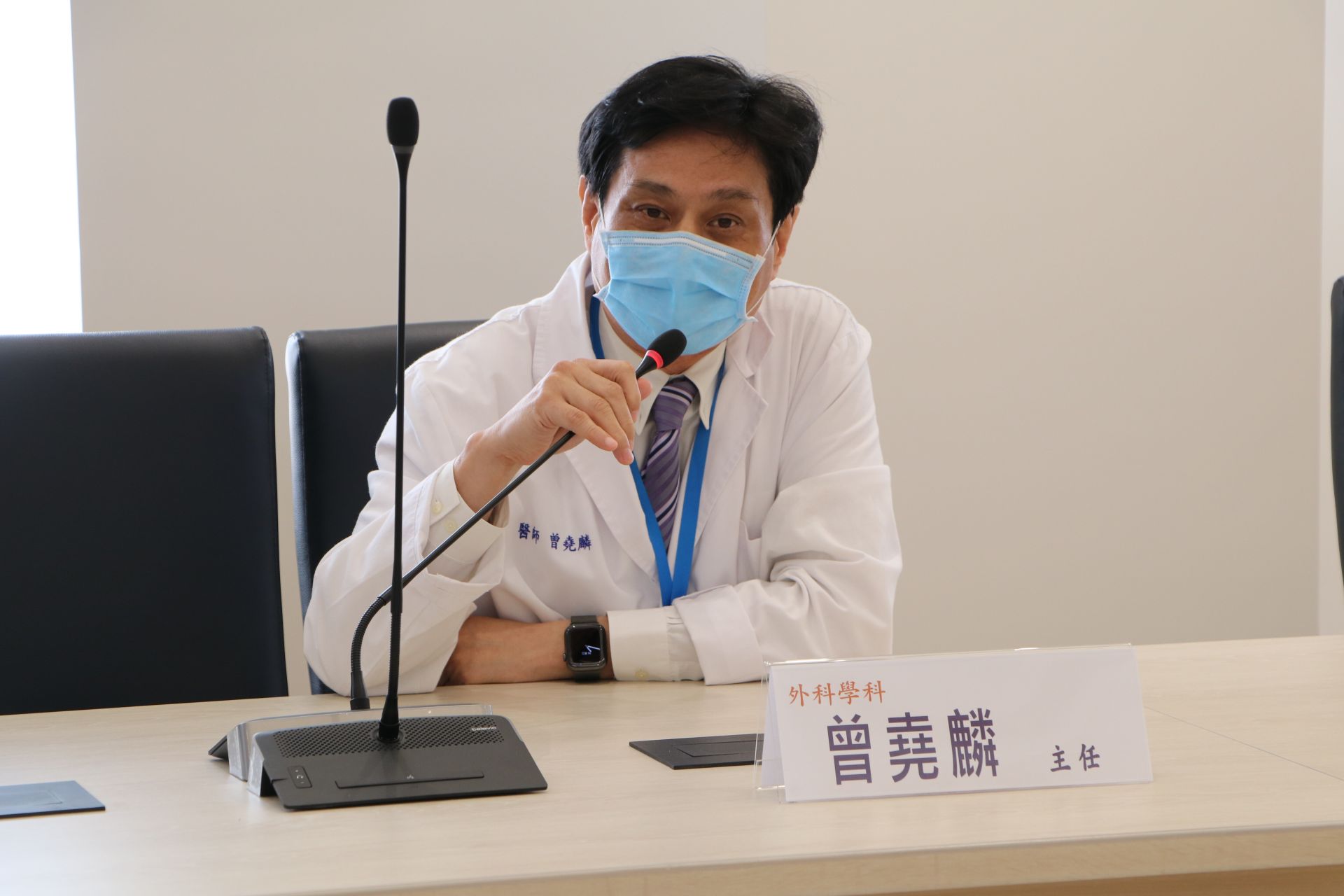
成大醫學院外科學科主任曾堯麟
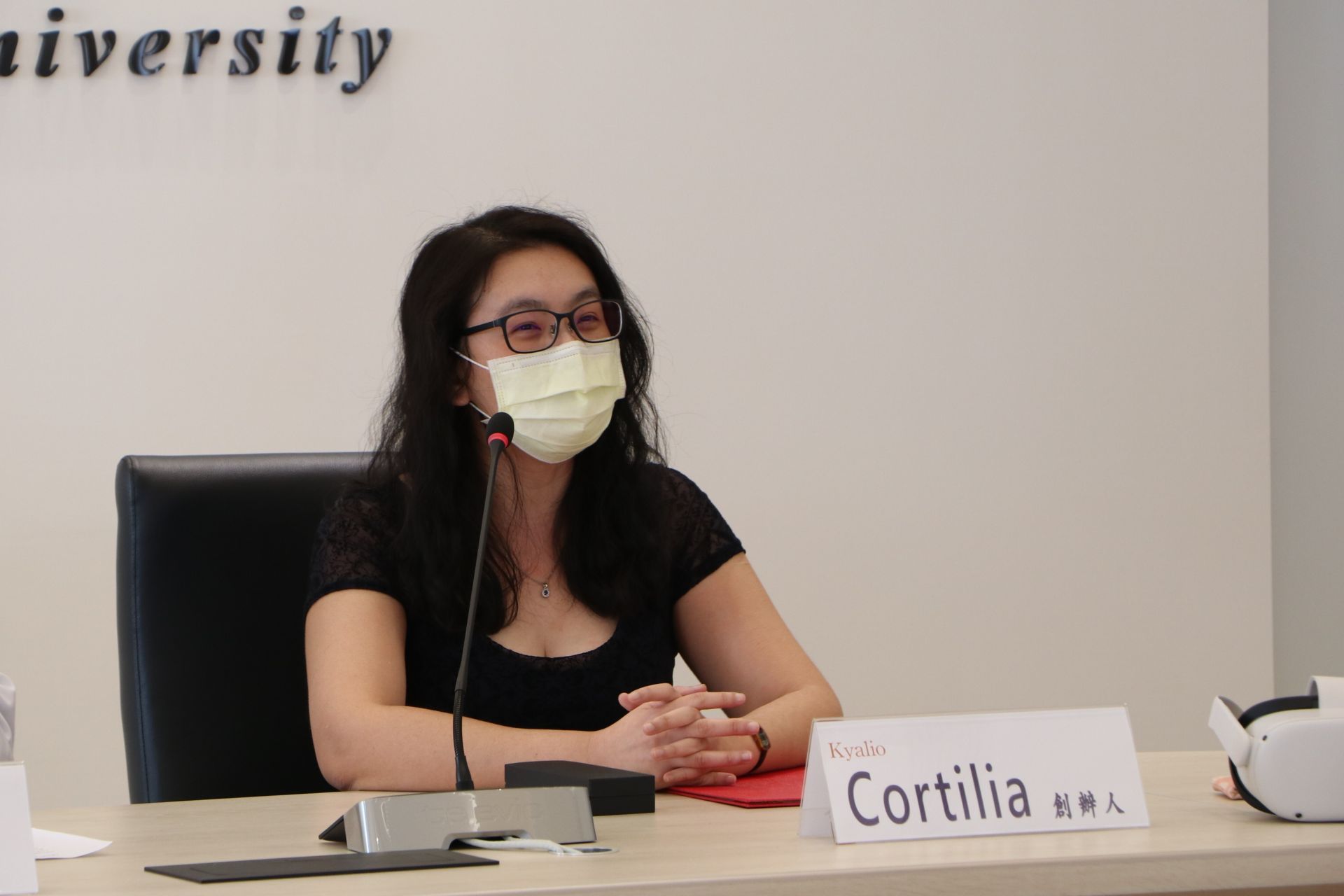
Kyalio 很榮幸能夠用獨有的「敘事手法」(story-telling)將成大外科手術的經驗融入 VR 科技
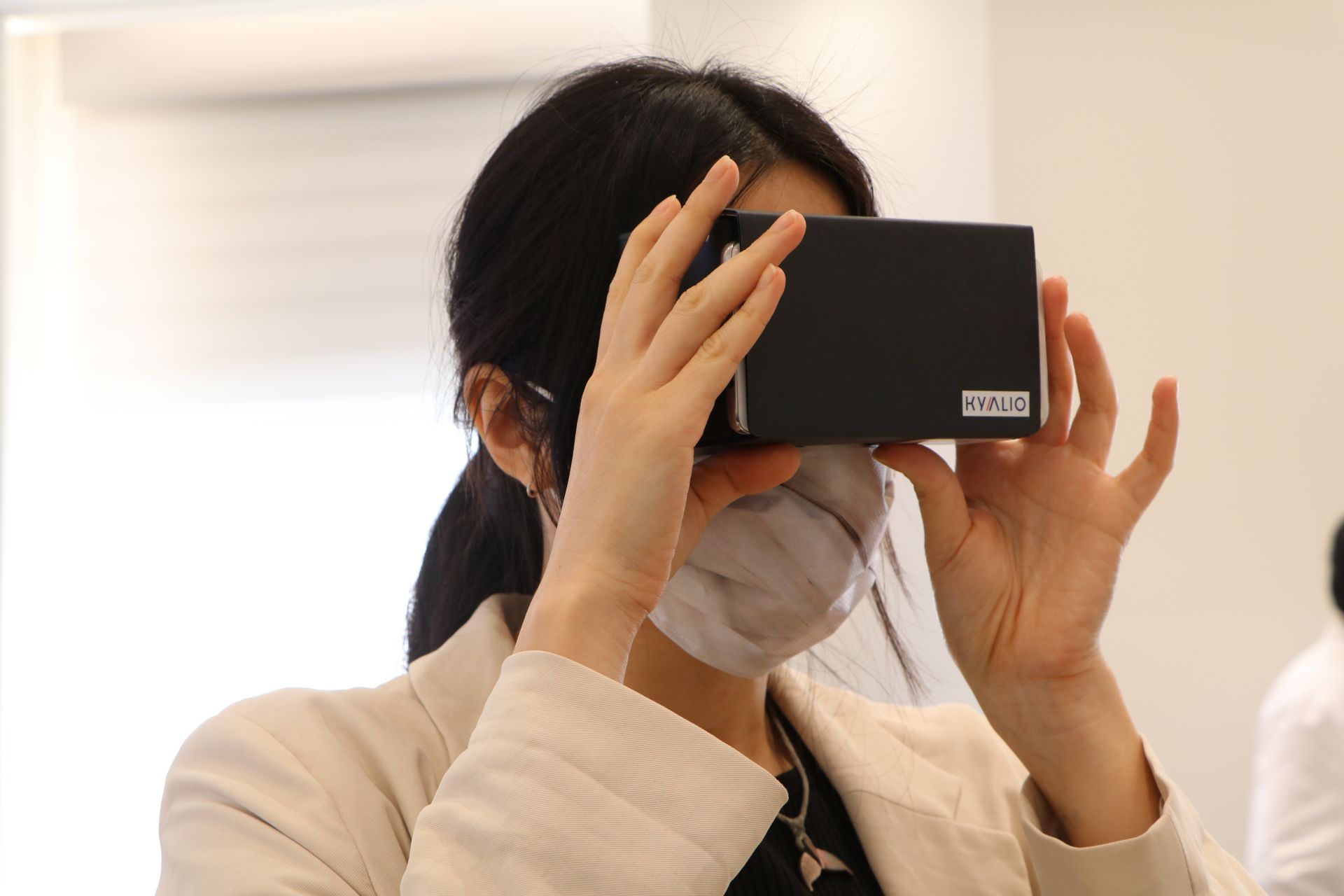
Cardboard 裝置體驗



